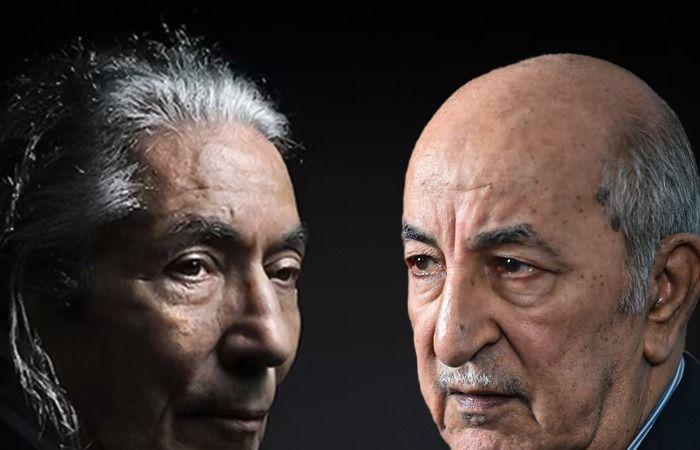The political climate in Algeria has worsened after the outrageous remarks of President Abdelmadjid Tebboune, who, by describing the detained writer Boualem Sansal as an “imposter”, once again shed harsh light on the authoritarian drift of the Algerian regime. Statements which not only underline the repressive nature of the government, but also reveal the desire to conceal the embarrassing truths of Algeria’s contemporary history.
In a public outing that was both shocking and irresponsible, Abdelmadjid Tebboune attacked the writer, whose arrest last November had already sparked a wave of indignation internationally. According to the Algerian president, Boualem Sansal is an “impostor who does not know his identity”. Tebboune declaimed: “You send an impostor who does not know his identity, who does not know his father, and who comes to say that half of Algeria belongs to another state. » A disproportionate and unfounded accusation, which seems to reflect a deliberate desire to eradicate all forms of dissidence in the country.
It is difficult not to see this as an attempt to destabilize freedom of expression, even though Boualem Sansal has neither been tried nor found guilty by the courts. By calling the writer an “imposter”, the Algerian president is not content to carry out a personal attack against a recognized intellectual; he places his speech in a logic of denial of dissident voices. These comments confirm fears that the regime of Abdelmadjid Tebboune, successor to a long line of authoritarian leaders, seeks to maintain absolute control over the country, while stifling all dissent.
The president, by proceeding in this way, is not content to ignore the presumption of innocence, he adopts a position which is akin to an admission of the authoritarian nature of the Algerian regime. Algeria, under Tebboune, now appears to be an open dictatorship, where freedom of expression is violated and where those who dare to question the official version of history are immediately silenced.
The excess of his remarks towards Boualem Sansal is not a simple verbal slip, but is part of a broader political and social context, where the repression of dissident voices becomes a daily mode of governance. The silence of judicial institutions and the absence of any legal verdict on Sansal’s arrest clearly show that the Algerian state intends to punish without trial, thus stifling any form of public debate.
Through this direct attack against a writer of international stature, President Tebboune seeks to suppress the truth about the Black Decade, a tragic period in Algerian history, when thousands of lives were shattered by political violence. Boualem Sansal, in his writings, has always highlighted the scars left by this period, a history that the Algerian government seems to want to erase. The 75-year-old writer, author of “The German Village” and other powerful novels, took a stand against official manipulations regarding this era, and it is probably this intellectual courage that has earned him a reputation today. such persecution.
This is not the first time that Algeria has fallen into brutal repression. For years, the regime has used the anti-terrorism law to lock up its opponents, whether activists, journalists or ordinary citizens, who dare to oppose the country’s domestic and foreign policy. Boualem Sansal, emblematic figure of freedom of expression, is now one of the victims of this repressive system.
Sansal’s arrest coincided with a major diplomatic turning point, after France recognized Morocco’s sovereignty over its southern provinces, another particularly sensitive subject for Algeria. This complex geopolitical context, coupled with the increasingly tense internal situation, with protest movements like #Manish_Radi, condemning the catastrophic socio-economic conditions of the country, fuels a feeling of generalized frustration within the Algerian population. This feeling of revolt, fueled by a persistent economic and social crisis, finds its voice in online movements, but also in the brutal repression of free speech.
Support for Boualem Sansal was not long in coming. International voices, such as those of the French Academy, have risen to demand the immediate release of the writer. The Overseas Academy of Sciences, like many other institutions, denounced this arbitrary arrest and called for immediate respect for human rights and fundamental freedoms. These positions demonstrate global support for the writer and underline Algeria’s growing isolation on the international scene.






